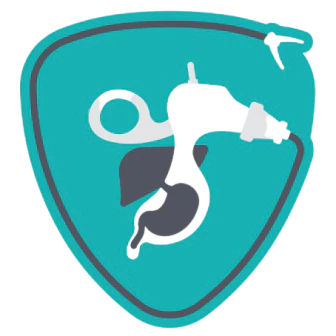Ulcerative colitis (UC) is a chronic inflammatory condition that affects the colon (large intestine) and rectum. It causes inflammation and ulcers in the lining of the digestive tract, leading to symptoms like abdominal pain, diarrhoea, rectal bleeding, and fatigue. If not managed properly, ulcerative colitis can significantly affect your quality of life. Poorly controlled UC may lead to severe complications such as weight loss, malnutrition, dehydration, and even an increased risk of colon cancer.
Diet plays a crucial role in managing ulcerative colitis symptoms. While no single “diet” works for everyone, certain foods can help ease symptoms and promote healing, while others may worsen the condition. Understanding the right types of diets can help you control symptoms and live a more comfortable life.
6 Types of Diets for Ulcerative Colitis
- Low-Fiber Diet
Fiber is important for digestion, but during UC flare-ups, a high-fiber diet can irritate the inflamed colon. A low-fiber diet, which avoids raw fruits, vegetables, whole grains, and nuts, can help reduce symptoms like diarrhoea and bloating. Cooked, peeled vegetables and fruits, white bread, and rice are easier on the digestive system. - Low-Residue Diet
Similar to a low-fiber diet, a low-residue diet is designed to reduce the amount of undigested food that passes through the colon. This can help prevent diarrhoea and abdominal discomfort. Foods to include are refined grains, lean proteins, and dairy alternatives like lactose-free milk. Avoid tough meats, raw vegetables, and seeds. - Lactose-Free Diet
Some people with ulcerative colitis are lactose intolerant, meaning their bodies have trouble digesting lactose, a sugar found in milk and dairy products. This can lead to gas, bloating, and diarrhoea. Avoiding dairy products or choosing lactose-free alternatives like almond milk or soy milk can help reduce discomfort. - Gluten-Free Diet
While not everyone with ulcerative colitis needs to avoid gluten, some people find that cutting out gluten (a protein found in wheat, barley, and rye) helps reduce symptoms. If you suspect gluten worsens your UC, try eliminating gluten-containing foods like bread, pasta, and baked goods to see if it makes a difference. - Specific Carbohydrate Diet (SCD)
The SCD is a more restrictive diet that limits the types of carbohydrates you eat. It removes all complex carbs (such as grains, legumes, and starchy vegetables) and sugars, focusing on simple carbohydrates like fruits, vegetables, meats, and some dairy. This diet aims to reduce inflammation by limiting the food that harmful gut bacteria feed on. - Probiotic-Rich Diet
Probiotics are live bacteria that are beneficial for gut health. For people with ulcerative colitis, eating foods rich in probiotics like yoghurt, kefir, and fermented vegetables may help restore the balance of good bacteria in the digestive system. However, during flare-ups, avoid dairy-based probiotics unless they are lactose-free.
Management of Ulcerative Colitis
Managing ulcerative colitis involves more than just diet. It’s essential to follow your doctor’s treatment plan, which may include medications to reduce inflammation and control symptoms. Regular check-ups are important to monitor the condition and prevent complications.
Proper hydration is crucial, along with medical treatment, especially if you’re experiencing diarrhoea. Drinking plenty of fluids, like water and electrolyte-replenishing drinks, can help prevent dehydration.
Stress management also plays an important role in UC management. High stress levels can trigger flare-ups. Practices such as yoga, meditation, and regular exercise may help reduce stress and improve overall well-being.
Diet is a key factor in managing ulcerative colitis, but it’s important to remember that it works best when combined with medical treatment and a healthy lifestyle. Making small changes to your eating habits, such as opting for low-fibre or lactose-free foods during flare-ups, can make a big difference. Always consult your doctor or a dietitian before starting any specific diet plan for ulcerative colitis.
In addition to focusing on diet, maintaining a balanced lifestyle with regular exercise, hydration, and stress management can help keep ulcerative colitis symptoms in check. By staying proactive and working closely with your healthcare provider, you can manage your condition effectively and improve your quality of life.

